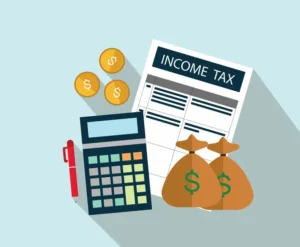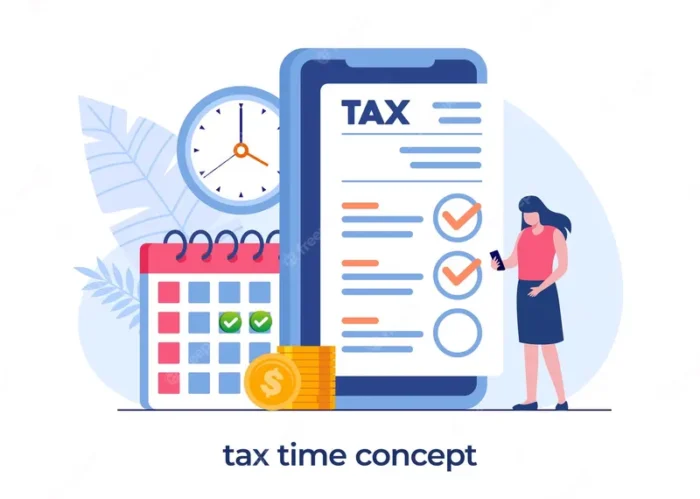Tax Breaks Unveiled: Your Guide to Paying Less and Saving More

Tax optimization is a financial strategy that can significantly impact your financial well-being. It’s not about evading taxes but rather strategically managing them to reduce your tax liability legally. By optimizing your taxes, you can have more money to save, invest, or spend on what matters most to you.
Contents
- I. Introduction
- II. Understanding the Tax System
- III. Ways to Reduce Tax Obligations
- IV. Planning Your Income and Investments
- V. Business and Taxes
- VI. Property Taxes and Major Purchases
- VII. Tax Planning for Families
- VIII. Tax Optimization in Retirement
- IX. Tax Planning for Investments
- X. Compliance with Tax Rules
- XI. Conclusion
I. Introduction
The Significance of Tax Optimization
Tax optimization plays a crucial role in managing your financial resources effectively. It’s about making smart financial decisions within the boundaries of tax laws to reduce your overall tax liability. By optimizing your taxes, you can allocate more money toward your financial goals, whether that’s saving for retirement, investing, or achieving other milestones.
Article Objective
The primary objective of this article is to provide you with a comprehensive understanding of tax optimization strategies. Whether you’re an individual taxpayer or a business owner, you’ll gain insights into the various aspects of tax planning and reduction, ensuring that you can make informed decisions to secure your financial future.
II. Understanding the Tax System

Types of Taxes
The world of taxation encompasses a wide range of taxes, including income tax, corporate tax, property tax, sales tax, and more. Each type of tax has its own set of rules, rates, and implications. A fundamental understanding of these taxes is essential for effective tax planning.
Differences Between Federal, State, and Local Taxes
Taxes don’t stop at the federal level; they extend to state and local levels too. Variations in tax rates, rules, and deductions exist based on your location. Knowing these differences is crucial, as it can significantly impact your tax strategy.
Overview of Tax Legislation Changes
Tax laws are dynamic and subject to change. Staying up-to-date with recent and upcoming tax legislation changes is vital to ensure that your tax strategy remains aligned with current laws and regulations.
III. Ways to Reduce Tax Obligations

Deductions and Tax Credits
This section delves into the world of deductions and tax credits, exploring how they can effectively reduce your taxable income. Learn about common deductions, such as those related to mortgage interest, educational expenses, and charitable contributions.
Optimizing the Standard Deduction
Discover strategies to maximize the standard deduction, which is a fixed amount that reduces your taxable income. Effective management of deductions can help you surpass the standard deduction threshold, resulting in more significant tax savings.
Donations and Charitable Giving
Explore the tax benefits of charitable contributions. Donating to qualified charities not only supports causes you believe in but can also provide valuable deductions that reduce your overall tax liability.
Investing in Tax-Advantaged Accounts
Understand the advantages of tax-advantaged accounts like Individual Retirement Accounts (IRAs) and 401(k)s. These accounts offer various tax benefits, including tax-free growth or tax deductions, depending on the type of account and your contributions.
IV. Planning Your Income and Investments
Diverse Income Sources
Diversifying your sources of income can offer tax advantages. Gain insights into the tax implications of various income sources, such as employment income, investments, and rental income.
Strategies for Reducing Taxable Income
Learn about strategies to lower your taxable income, such as investing in tax-efficient funds, deferring income, or leveraging business deductions if you’re self-employed.
Tax-Efficient Investment Management
Explore the concept of tax-efficient investment management, which can help you minimize capital gains taxes and maximize the benefits of tax-efficient investment vehicles.
V. Business and Taxes

Tax Optimization for Entrepreneurs
Entrepreneurs can reap significant tax benefits by leveraging deductions, credits, and appropriate business structuring. Discover how to optimize your tax strategy as a business owner.
Benefits of Business Structures
Different business structures, including LLCs and S corporations, offer unique tax advantages. Understanding which structure suits your business can result in substantial tax savings.
Specific Tax Considerations for Companies
Large corporations have access to specific tax incentives and credits. Delve into the unique tax considerations that can benefit businesses of various sizes.
VI. Property Taxes and Major Purchases

Reducing Property Taxes
Learn effective strategies to lower your property tax burden, including tips for appealing assessments, leveraging homestead exemptions, and exploring tax abatements.
Taxes When Buying and Selling Real Estate
Gain insights into the tax implications of real estate transactions, including capital gains tax considerations and the potential deductions associated with mortgage interest.
Savings on Automobile Purchases
Discover how to save on taxes when purchasing a vehicle, including strategies such as deducting sales tax or capitalizing on electric vehicle credits.
VII. Tax Planning for Families
Family Tax Deductions and Credits
Families can benefit from various tax deductions and credits designed to alleviate the financial costs of raising children. Explore these opportunities to reduce your family’s overall tax liability.
Education and Taxes
Understand the relationship between education expenses and tax benefits, including deductions for student loan interest and the advantages of tax-advantaged education savings accounts.
Estate and Tax Planning
Planning for the transfer of your wealth to heirs involves considering estate taxes. Gain insights into strategies for minimizing estate taxes while ensuring a seamless transition of assets.
VIII. Tax Optimization in Retirement
Tax Implications of Retirement Accounts
While retirement accounts like 401(k)s and IRAs offer tax benefits during your working years, they come with tax considerations in retirement. Learn how to navigate these tax issues effectively.
Reducing Taxes on Social Security Benefits
Discover strategies for minimizing the taxes you pay on your Social Security benefits, maximizing your retirement income.
Taxation of Retirement Distributions
Understand the taxation of retirement account withdrawals and how to plan your distributions to achieve tax efficiency.
IX. Tax Planning for Investments
Taxes on Investment Income
Different investments carry distinct tax implications. Explore the taxation of interest, dividends, and capital gains, and learn strategies to minimize taxes associated with various investment types.
Reducing Taxable Capital Gains
Gain an understanding of capital gains taxes and techniques for reducing your tax liability, such as tax-loss harvesting and leveraging long-term capital gains tax rates.
Tax-Efficient Asset Sales
Learn how to optimize the sale of assets, including stocks and real estate, to minimize capital gains taxes and maximize your after-tax returns.
X. Compliance with Tax Rules
The Importance of Tax Compliance
Compliance with tax laws is critical to avoid penalties and legal issues. Learn why adhering to tax laws is essential for your financial well-being.
Risks and Penalties for Tax Violations
Explore the potential risks and penalties associated with tax violations, emphasizing the importance of maintaining accurate records and fulfilling your tax obligations.
Recommendations for Tax Compliance
Discover practical recommendations for staying in compliance with tax laws, including the benefits of periodic tax audits and the value of seeking guidance from tax professionals.
XI. Conclusion
Summing It Up
In conclusion, this article has provided a comprehensive overview of tax optimization strategies, ranging from understanding the tax system to reducing tax obligations, planning income and investments, and complying with tax rules. The key takeaway is that informed tax planning can significantly impact your financial well-being. It’s a continuous process that involves staying updated with tax laws and seeking expert advice when needed. By implementing effective tax optimization strategies, you can secure your financial future and make the most of your hard-earned money. Remember, consulting with a tax professional is always a valuable step in tailoring your tax strategy to your specific financial situation.







